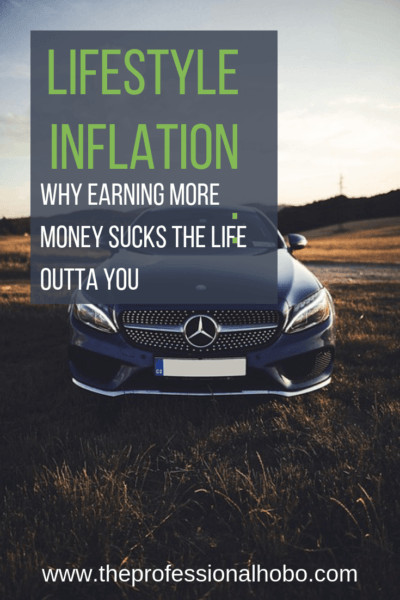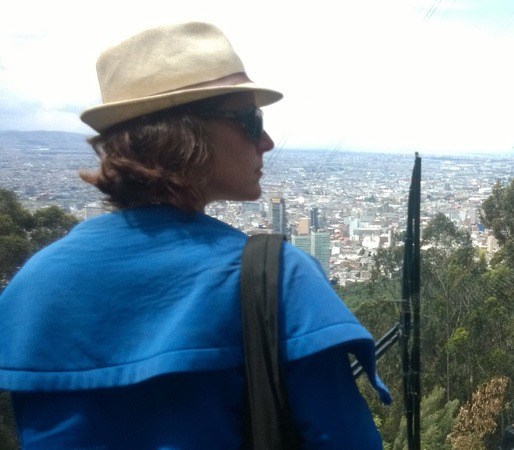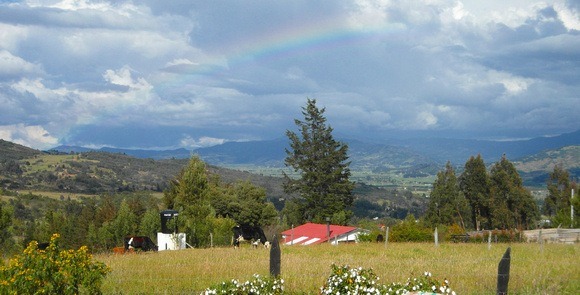Lifestyle Inflation at work: A curious thing happened when I was “living the life” in Toronto. Having crossed over into the six-figure income bracket, I didn’t seem to actually be taking home any more money or enjoying a substantially higher quality of life than when I earned half as much.
Here are some musings as to why this could be, and why focusing on earning more money sucks the life outta you.
This post was originally published in 2016. It has since been updated for accuracy of links and content.

You Spend More to Earn More…
One of the first things I noticed about earning more money as is pertains to lifestyle inflation, was that it actually costs more money to earn more money. With a booming financial planning practice, I had to hire an assistant, and pay her salary, insurance, benefits, office space, etc. I also had inflated regulatory business expenses in the form of higher liability insurance premiums etc. And of course, being in the highest income tax bracket meant more money going to the taxman.
At an income of $120,000, I didn’t seem to be taking any more money home than when I was earning about half as much.
…to Spend More
There’s more to this picture. As my income increased, so too did my “necessary” expenses to play the part of a successful financial planner. A Honda Civic was no longer the sort of car that said “I’m really good at what I do, and I help millionaires make money”. So I bought a nicer car.
And in wooing bigger clients, I spent more money on them; treating them to nice meals, sending gifts, and generally maintaining my ever-growing client base. I upgraded my business wardrobe, once again to “walk the talk” of a successful business woman.
These expenses were at least things I could reap some benefits from (more so than higher taxes and insurance premiums), but they only marginally increased the real quality of my life.
…And you Spend Time Doing it
Let’s not forget that earning more money cost me something intangible but oh so important: time and energy. The more money I made, the more married to my business I became. The more clients I had to manage. The more things I had in my head to juggle. The more mental energy I expended on my clients’ behalf.
And the less life I had in me for other things like pleasurable pursuits.
It’s Not Just Me
Studies have shown that people with higher incomes generally have less fun; they spend more time working, commuting, shopping, doing chores, and are generally under more stress and tension than those in lower income brackets.
According to government statistics, people earning more than $100,000/year generally spend 19-20% of their time on passive leisure pursuits. Conversely, people earning less than $20,000/year spend 33-35% of their time on passive leisure pursuits. The study goes on to say that once you earn $75,000, no matter how much more than that you earn, you won’t be any happier.
Earning Less = Living Less?
Fast forward a few years to when I sold everything to travel full-time. I was earning something closer to $20,000 rather than $120,000. (That’s $100,000 less in income! Wow).
And yet, I was traveling the world full-time in a financially sustainable way, living in idyllic places, and enjoying much more free time. I didn’t have half the stressors of my former life.
And let’s get it right: I’m not a fruit-picking hippie (not that there’s anything wrong with that); although I occasionally had to clean a toilet or milk a goat in trade for my free accommodation, more often than not I was earning my free digs with tasks I really enjoyed (like painting murals, cooking, and designing business plans) and developing my passion-based freelance writing career, all the while no longer under the thumb of an expensive economy and lifestyle that “required” me to work all the time.
Earning less doesn’t mean living less; in many cases it’s quite the opposite.
Income vs Expenses
Don’t believe me? Check out my cost of full-time travel for 2010 and 2011, which, without any effort on my part, was almost exactly the same at around $17,000.
When a colleague of mine suggested in early 2012 that a good business plan for the year would be to make more money, I balked. I didn’t feel I was making any lifestyle sacrifices with my lower income; when I wanted lobster, I ate lobster.
Rather, I made conscious choices as to how I spent my money, so that I could live within my means and still have whatever I needed and wanted in life. And remember – in earning less, I was also working less, which suited me just fine thankyouverymuch. I wrote about post at the time about income and expense choices, in which I mused that my income was a means to my lifestyle, not vice versa.
In Later Years…
Despite my best efforts, my income almost doubled in 2012, and increased again in 2013. This was partially a function of me reaping the benefits and growth of the freelance writing business and reputation I had built over the years, but also partially a function of me falling into old “rat race” habits. The freelance world is one of feast or famine; one day you might be up to your eyeballs in work, and the next you’re wondering where all the work went. So times were booming for me, but along with those booming times was a feeling that I was dancing to stay atop a snowball that was careening down a mountainside. I had lost control of the fine balance between income and expenses, and my quality of life suffered for it.
I hit critical mass in 2014. I recognized the signs; I was tired before I even got out of bed in the morning, my head swimming constantly with “things to do”. My neighbours would ask me if I’d been traveling since they hadn’t seen me in ages, when in reality I hadn’t gone anywhere; I was simply trying to keep up with work and the daily tasks of life. When I did travel, I spent most of my time locked in my room on my computer, wondering why I was even traveling to begin with.
What I’m Doing About it Now

By the last half of 2014, I knew it was time for another change. I’d lost much of my inspiration to write, and was frustrated with the cage I’d built myself that tied me to an internet connection practically every day. I wanted to engage the world on a different level. As I alluded to in my post outlining my 2014 income, I’ve already taken measures to fix this by cutting back on many of my freelance obligations to make space and time for new opportunities.
What this means, however, is that my income is also decreasing proportionately (at least for now). But the funny thing is, I haven’t noticed a substantially lower quality of life for these decisions; in fact if anything, my quality of life is higher now that I’m spending more of my time each day doing things I want to do rather than things that simply pay the bills. And in many cases there’s a marriage between the two (I’m doing what I want to do and making money at it).
Has Earning Money Sucked the Life Outta You?
What about you? Did you ever find that an increase in income wasn’t everything you’d hoped it would be? Have you gotten a raise and then been disappointed with the quality of life that ensued? Have you been sucked into the lifestyle inflation funnel?



OMG – sooooo spot on, my dear! More $$$ doth surely NOT = more quality living! Indeed, pretty much the opposite. As you too have discovered, more $$$ tends to suck you into a downward spiral of stress and ever more “stuff” (that adds not a smidge of sustained happiness to your life).
I consider myself/my life very lucky: As a single mom with 2 young daughters, I went back to school (to finish a B.S., grab an M.S. and try my level best to resist the temptation to become a professional student) 😉 Amid those 6 years I managed to drag my 2 daughters (age 8 and 11) all over Europe for nearly a year (on study abroad programs in France and Italy – financed purely via U of Oregon financial aid), and most importantly – I learned HOW TO HAVE A SUPREMELY HIGH QUALITY LIFE ON A SHOESTRING BUDGET.
Ah but… Most interestingly, after I finally left academia for a lofty salaried “job” in my field (I paid more in taxes that first year than the 3 of us had LIVED ON the prior year!). Indeed, I suddenly had money to burn. So much money (given my prior 6 years of frugality) I didn’t even know how to spend it.
Ah, but – much like you – within just a few months, I too was incrementally spending more and more (fancy work clothes, pricey work lunches, spendy TGIF happy hours, younameit). In short, very soon I was spending nearly all that hefty paycheck paid – and had about the same “disposable” income as when I was a struggling student!
And in the process – I’d become chained to an unsatisfying treadmill spiral – and utterly loss the free-spirited joy I’d had as a struggling single mom/student.
IOW, thank GOODNESS for that experience in my early years. I’ve since fully embraced the notion of “keep.your.overhead.low”, along with “This surely ain’t no dress rehearsal.”
I too dropped off the insufferable corporate career ladder, started my own small int’l tour company (making 1/4 of my corporate salary) that allowed me to skip through jungles and loll in hammocks as a tour guide in Costa Rica and Belize for 20+ years. And now, retired, I live blissfully here on a beautiful mountain top in Ecuador (Cuenca) – and continue to add to my 40+ country travels (this past year alone, the Galapagos, Easter Island and Cuba). And soon – a month or more exploring the Balkans and Turkey.
In short – oh my yes, the blind pursuit of earning ever more rubles, can and probably will, suck the joy of life out of you.
Hi Dyanne,
WOW! I’ve known you (in online circles) for quite some time, but I wasn’t aware of your life story in this context. Thanks for sharing!
These:
“keep.your.overhead.low”, along with “This surely ain’t no dress rehearsal.”
– are words to surely live by. 🙂
Hi Nora,
Oh the psychology of it all ! 🙂 Your story rings several bells to me… I once worked for the United Nations which meant a huge tax free salary, but it was only for a specific time and after that you were unemployed and because your salary was tax free your weren’t getting any unemployment benefits because you didn’t pay any taxes on it. At least not in my country.
Now , you would think people would be saving like mad and already trying to find another job . But no… people were spending all their money like mad on holidays after they left and on other unnecessary ‘stuff’ . But…but.. I said (I was always a special child) , don’t you want to save something ? Hell no, they said look at what I making ..yeah..but..I said. True, I’m a compulsive saver which has it’s own ‘special’ problems 🙂 And so it goes…
Hey Dick!
Ha ha – I’m a compulsive saver as well! It served me very well in my early working years, as I was able to learn to live simply and sock away a bunch of money that remains invested and compounding in growth for retirement (whatever that is, these days). So I hear your “special child” story! I too, would have been looking ahead with that UN job. They say “great minds think alike”…..(and they also say that “fools seldom differ”, but I usually choose to ignore that part) LOL
Utterly fascinating what money does to people isn’t it ? 🙂
I once had a colleague who desperately wanted to work less but wasn’t sure she could manage it financially. So I made here a spreadsheet model where she could crunch some numbers to see whether it was at all possible. I gave it to her as a gift (and to stop from “complaining” about it 🙂 .
Her reaction ? ‘What ?! You want me to do what ?… ! I’m not doing that ! … So she continued standing in front of the office window, looking at the sky ..muttering , what she wouldn’t give to work less. .. Bewildering ..bewildering 🙂
There’s more to money that just happiness.
With money generally comes other things – a more important job, more status, more responsibility. Those things are not necessarily bad, they are an important part of psychology and purpose and for many the reason to get up in the morning.
In addition, money can mean more security, not only for you but for those who might depend on you. Being able to provide for those around you is a great source of satisfaction but it does not have to be a source of happiness.
Great points, Cap! Cheers.
Yes. I learned this first hand. I was a train conductor and we make six figures easy working the east coast but it was an illusion. With six day work weeks at times and making all that over-time, the Irs would take 50%. However, my work hours were never reduced by 50%. Trading our time for money is a terrible trade.
Nomadic now for a year and have never felt more abundant.
Elaine – you go girl! 🙂
Very good article, very realistic, but maybe hard fro some to believe, never the less true.
Thanks, Natalie!
As famous rapper Biggie Smalls once said, “mo money, mo problems”. While I definitely desire to make more money than I do right now, I won’t cry if I don’t ever make a very high income. As long as I make enough to make my dreams come true, and save up a buffer for reasons of security, I think my life will be a fulfilling one.
Ha ha – who knew rap could be so prophetic! 🙂
Sounds like you’ve got a great approach to money, and to life. Keep on living it!
Nora, this post resonated with me in a very profund way.
I have a question for you…. any tips or advice on how to make the change?, how do you cut the psychological addiction of wanting more more and more? (even when you know for sure having more won’t make you happy).
It’s hard because society theaches us from a very young age that more money is always better, i’m making tons of income but finding it really hard to run away from my mental traps regarding income.
Thanks, keep the good work Nora!.
Hi Paul,
That’s a great question to which I don’t have a great answer. 😉
I escaped this “addiction” myself when I started traveling full-time, since I was forced to fit everything I owned into a bag and fell out of any habits that come with living in one place.
But as soon as I started to create a home in Peru, it’s amazing how I started to accumulate stuff again! I wasn’t necessarily spending a ton more money, but I felt old habits coming back.
So how do you achieve this shift out of wanting more without turning your whole life upside down? I’m really not sure. But I think that your sheer awareness of the situation and the traps thereof is a big step.
Good luck!
Thanks Nora! 🙂
Paul, not sure this will help but I went through this change and documented it below.
I hope it helps in some way
First of all, very nice “confession”, Elaine. 😉
And to Paul (a bit of a follow-up to my comment above): 5 years ago I sold every.blessed.thing (save for what fit into a rollie and a backpack) and bought a one-way ticket to Vietnam…
And never looked back.
My many travels and expat experiences since (I’m now living in a wondrous UNESCO World Heritage site at the tippy-top of an 8,000 ft. Andean mountain in Cuenca, Ecuador – and I might add, hope to welcome Nora here sooner rather than later) could fill a TOME (and indeed have filled nearly 400 blog post), but most importantly:
Shedding all that “stuff” – I’ve never felt so utterly FREE!
It’s honestly impossible to describe what it’s like – you really have to try it for yourself. I can’t even REMEMBER 95% of the stuff I dumped when I made my “Great Leap”. I miss none of it, and indeed get an anxiety attack now whenever I have to buy anything larger than a pair of earrings or a scarf. I’m a fully free-spirited citizen of the entire GLOBE now, and would never dream of going back to my life with all that “stuff”.
So to answer your question – it might seeeeem like it’s impossible to buck the mindset that we (in the U.S.) have been brainwashed since birth into swallowing hook, line and sinker (for it is indeed, a deliberate system to perpetuate a capitalist system that DEPENDS on you believing what you have isn’t good enough, and you NEED ever more shiny, bigger, new), but…
Surely you’re not a robot. You have a mind of your own. Just a matter of CHOOSING a different path. If you’re truly serious about traveling the world and/or living a simple life not dependent on “stuff”, just DO IT.
It CAN be done. Many of us are proof of that.
Elaine and Dyanne, thank you both very much for your stories. I can imagine the moment of making the leap was hard, but you made it happen!, and that encourages me.
As nora said, the first step is awareness
Great article, Elaine! 🙂
Thank you Dyanne. It was an exciting transition but it did take
Letting go of the old! I don’t regret it and I can’t go back to having 30 purses I never use. Haha.
You all take care. Next destination to go to;)
A haiku for you 🙂
You’ve reminded me
That the best in life is free
Thank you Nora D
O
Oliver: LOL! Thank you! You made my day. 🙂
I feel without progression in capitalist society then eventually those freedoms enjoyed by minimalist living will be taken away by those with means to take advantage. For me this is intrinsic motivation for wealth creation as a defence mechanism or protectionism against those threats to what I hold valuable for me and kin.